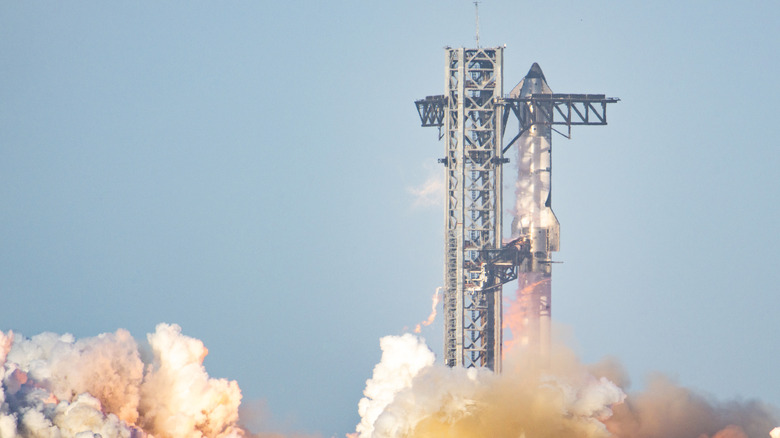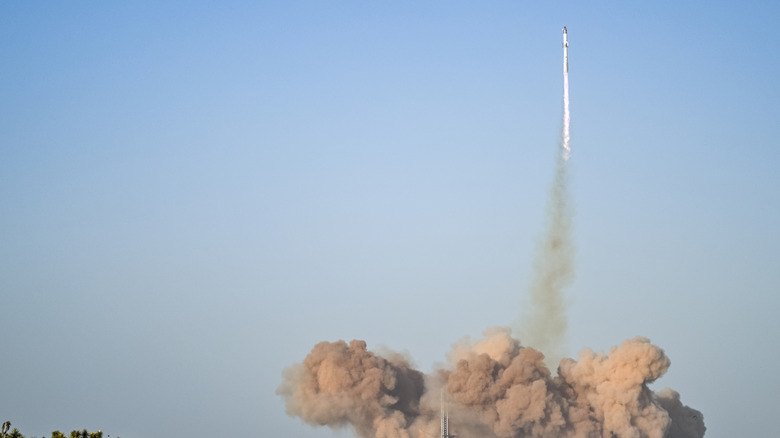Florida Flights May Have To Adapt To Sharing Airspace With SpaceX - Here's How It May Affect You
SpaceX, a private space exploration company that (in case you live on Mars) designs, builds, and launches reusable rockets and spacecraft, has set its sights on Florida to launch its massive Super Heavy Starship rocket, and it may cause more than just a few sonic booms. Starship is not only SpaceX's largest rocket, it is, according to the company, the most powerful launch vehicle ever made.
Starship currently launches from Starbase, the company's sprawling facility in South Texas. Since 2023, SpaceX has conducted 10 test flights, with varying degrees of success. Starbase, which was designated as an actual city earlier in 2025, houses a launch facility, a landing pad, a control center, and a tracking station. SpaceX hopes to eventually take Starship to the Moon and even a manned mission to Mars, though it has yet to successfully reach orbit in any of its flight tests, all of which have been performed unmanned, without a crew.
Now, SpaceX hopes to launch Starship from Kennedy Space Center and Cape Canaveral Space Force Station, both in Florida, in a move that would not only close local beaches periodically but could also delay up to 12,000 commercial flights every year.
What Starship launches could mean for Florida
In order to launch Starship from Florida, SpaceX needs approval from the U.S. Federal Aviation Administration (FAA), which is currently reviewing the request. Despite not yet having full approval, SpaceX has been constructing launch facilities for Starship at Kennedy Space Center since 2024.
What has local citizens concerned? SpaceX already launches its successful Falcon 9 rocket from Florida. Every time it does, multiple beaches are closed, and safety zones are enacted that disrupt both air travel and ships. Because Starship is so much bigger and much more powerful than the Falcon 9, the safety zones are expected to be much larger and disruptive, delaying flights by up to two hours. Floridians are also concerned with potential noise levels and how these launches could affect tourism.
SpaceX, which eventually targets up to 120 Starship launches every year, has responded to these concerns and more. It expects the safety zone around Starship to shrink based on its experience with Falcon 9 hazard areas, which have been reduced by more than 60% based on data from each launch. Along with changes based on experience, SpaceX says it is committed to partnering with the FAA to minimize impact on commercial air travel, though Starship's return flights could disrupt all planes traveling south into Florida, affecting flights in Orlando, Tampa, Miami, West Palm, and Fort Lauderdale. The sonic booms, which the company calls a "brief thunder-like noise," have no significant impact on the environment or wildlife, according to SpaceX.

